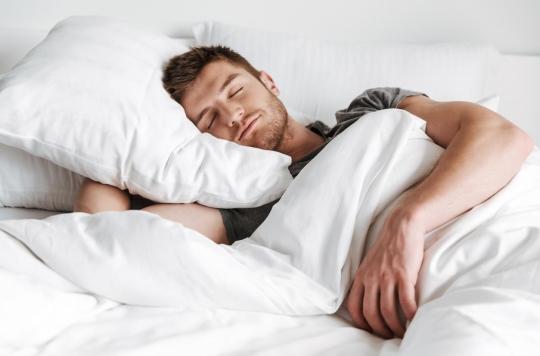Sleep acts on the brain and, according to a new study, people who get up early and those who go to bed late do not have the same intelligence.

- The circadian rhythm is an individual’s internal clock, which is timed to the daily 24-hour day/night rhythm.
- It controls many physiological activities in the body: sleep, mental health, digestion, blood pressure, learning, memory formation, etc.
It’s well known: some people are early risers and others night owls. But is there a relationship with intellectual abilities? This is what researchers from the University of Ottawain Canada.
The chronotype in relation to verbal intelligence?
The scientists studied the chronotype of participants, that is to say the preference of a person to do physical and intellectual activities in the morning or in the evening, according to his circadian rhythm. The chronotype can be hereditary, but it also varies according to age and sex.
Thus, the researchers asked several participants to complete a questionnaire called “Horne-Ostberg Morningness-Eveningness (MEQ)”, which aims to assess a person’s chronotype. At the same time, the scientists also wore an electronic device to measure their daily activity for ten days. Specifically, it was bedtime and wake up time, sleep time, daily life stability, etc. At the end of the study, participants also took cognitive ability tests: short-term memory, reasoning, verbal ability, etc.
Early risers have superior verbal ability
Previous research had proven that night owls had superior intellectual abilities, especially from a verbal point of view. A theory contradicted by this new study published in the journal Current Research in Behavioral Sciences.
“Once you factor in key factors including bedtime and age, we found (…) that morning people tend to have superior verbal ability“, explains in a communicated Stuart Fogel, director of the University of Ottawa Sleep Research Laboratory and one of the authors. This result surprised us and shows that it is much more complicated than anyone previously thought.Moreover, the link between chronotype and cognitive abilities was similar for men and women. Finally, higher short-term memory abilities were only associated with younger age.
The rhythm of young people does not depend on their chronotype
The researchers also observed that young people were generally night owls, while older people and those with more stable lifestyles were generally more morning people. The researchers therefore regret that the rhythm imposed by the school is modeled on that of the parents and their work rather than the real needs of the children. “Ultimately, they are at a disadvantage because the schedules (mornings) imposed on them is a daily struggle against their biological clock“, explains Stuart Fogel. authors point out that the human brain needs regularity and, above all, that we respect our needs according to our chronotype.















